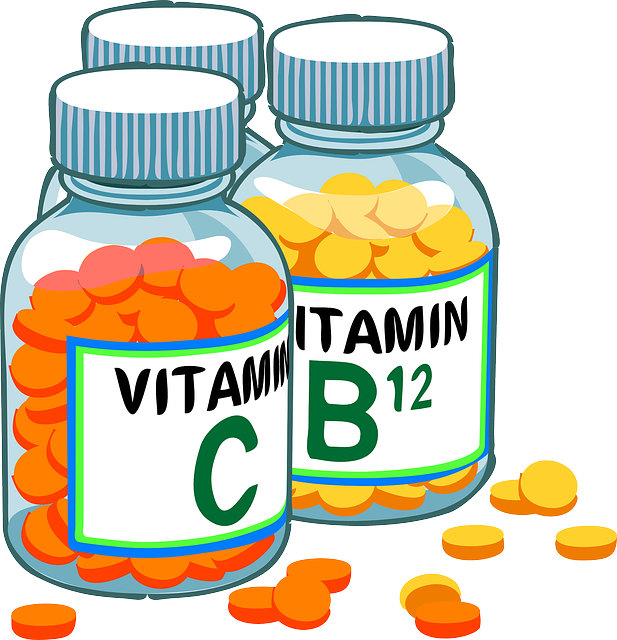Key Takeaways:
- Understanding the differences between dietary supplements and whole foods is crucial for making informed health decisions.
- While supplements can fill nutritional gaps, they cannot completely replace the health benefits of a balanced diet.
- Consulting with health professionals is essential when considering dietary supplements, especially for individuals with specific health conditions or nutritional needs.
The debate between dietary supplements and healthy food is a hot topic in the wellness community. With a plethora of options available, it's essential to understand the role each plays in maintaining good health. This article will delve into the intricacies of supplements vs food, the benefits of a diet, and when supplements might be necessary.
The Rise of the Dietary Supplement Industry
The dietary supplement industry has seen exponential growth, with many individuals turning to supplements nowadays as a quick fix to their nutritional needs.
From vitamin C to omega-3 fatty acids, the market is flooded with options promising various health benefits. However, it's important to scrutinize whether these supplements can truly stand in for the nutrients from food.
Whole Foods: A Symphony of Nutrients

Whole foods, such as vegetables, fruits, whole grains, and animal foods, are naturally rich in essential vitamins, minerals, and other nutrients. They offer a nutritional punch that is more than just the sum of their parts. For instance, citrus fruits not only provide vitamin C but also flavonoids, fiber, and water, all of which contribute to overall health.
Can Supplements Replace a Healthy Diet?
While certain supplements, like vitamin D supplements for those with limited sun exposure, can be beneficial, they should not be seen as a replacement for a normal diet.
Health professionals often stress that a balanced diet filled with a variety of whole foods is the best way to ensure you absorb nutrients effectively and meet your total nutrient intake.
The Role of Fortified Foods

Fortified foods are those that have nutrients added to them that don't naturally occur in the product. For example, milk often has vitamin D added to it to aid in calcium absorption. While it's beneficial to eat foods fortified with certain nutrients, especially folic acid for pregnant women, they should complement, not replace, a diet rich in whole foods.
Understanding Fat-Soluble Vitamins
Fat-soluble vitamins, such as vitamins A, D, E, and K, are stored in the body's fatty tissue. While a vitamin E or vitamin D supplement can help, obtaining these vitamins from food sources like fatty fish or leafy greens ensures you're also getting a host of other beneficial compounds.
The Intricacies of Essential Nutrients in Whole Foods vs. Supplements

Have you ever found yourself pondering whether popping a pill can truly give you all the essential nutrients you need? Let's dive into the nitty-gritty of this. Whole foods are like nature's multivitamins; they contain a plethora of vitamins, minerals, and other beneficial compounds that work in harmony to nourish your body.
For instance, an orange offers vitamin C, but it also provides fiber, antioxidants, and several other phytonutrients. These components can help lower the risk of chronic diseases and may contribute to lower all-cause mortality.
On the flip side, taking supplements can be beneficial in certain scenarios, such as for pregnant adults or those with specific nutrient deficiencies. Dietary guidelines suggest that supplements can help fill nutritional gaps but can't completely replicate the complex mix of nutrients found in whole foods.
It's a bit like comparing a live orchestra to a recorded symphony; both can be beautiful, but the live experience offers a richness that recordings struggle to match. Remember, while supplements can support a healthy diet, they shouldn't be the main act.
The Absorption Battle: Fat Soluble Vitamins in Foods vs. Supplements
When it comes to fat-soluble vitamins, the body's ability to absorb these essential nutrients can vary significantly depending on the source. Foods naturally rich in fat-soluble vitamins, such as vitamin A in carrots or vitamin D in fatty fish, come packaged with other compounds that aid in absorption.
For instance, the fats present in whole foods can enhance the uptake of these vitamins, which are best absorbed with dietary fat. This synergy is something that isolated supplements may lack, potentially affecting their efficacy.
On the other hand, supplements can be a boon for individuals with specific dietary restrictions or absorption issues. They offer a concentrated source of fat-soluble vitamins that can help bridge the gap in one's diet.
However, it's crucial to approach supplementation with caution, as excessive intake of these vitamins can lead to toxicity due to their storage in body fat. Consulting with a healthcare provider can help tailor the right balance, potentially lowering the risk of all-cause mortality by ensuring adequate nutrient intake without overdoing it.
The Impact of Essential Nutrients on All-Cause Mortality

The relationship between essential nutrients and all-cause mortality is a topic of significant interest in the health community. Essential nutrients, which include vitamins, minerals, fatty acids, and amino acids, are critical for maintaining bodily functions and overall health.
Studies have shown that a deficiency in these nutrients can lead to a higher risk of chronic diseases, which are a leading contributor to all-cause mortality. For instance, a lack of vitamin D has been linked to an increased risk of death from cardiovascular diseases, while insufficient omega-3 fatty acids can affect cognitive health and longevity.
Conversely, a diet rich in essential nutrients from whole foods is associated with a lower risk of all-cause mortality. Whole foods provide a complex matrix of nutrients that work synergistically to promote health and reduce disease risk.
For example, the fiber in fruits and vegetables not only aids digestion but also helps regulate blood sugar and cholesterol levels, contributing to a lower risk of premature death. While supplements can help fill nutritional gaps, they cannot replicate the full spectrum of benefits provided by a diet abundant in diverse, nutrient-rich foods.
The Nuances of Bioavailability: Essential Nutrients in the Spotlight
When discussing essential nutrients, the term 'bioavailability' often enters the conversation. Bioavailability refers to the degree and rate at which a nutrient is absorbed and becomes available at the site of physiological activity.
For instance, the bioavailability of certain minerals like iron and calcium can be significantly higher when sourced from supplements, as they are often designed to enhance absorption.
However, this doesn't necessarily mean that supplements are superior. The complex matrix of whole foods can influence the uptake of nutrients, sometimes enhancing, other times inhibiting their bioavailability.
In the context of all-cause mortality, the bioavailability of nutrients is a critical factor. It's not just about consuming the right amount of vitamins and minerals, but also how well our body can utilize them. Studies have shown that the natural form of nutrients in whole foods can be more readily used by the body, leading to better health outcomes.
For example, the vitamin C found in oranges is more effectively used by the body compared to synthesized ascorbic acid in supplements. This is due to the presence of co-factors in whole foods that aid in the absorption and utilization of nutrients.
The Connection Between Dietary Choices and All-Cause Mortality

When discussing all-cause mortality, the choices we make at the dinner table can have far-reaching implications. A diet rich in whole foods, such as fruits, vegetables, whole grains, and lean proteins, has been consistently linked to a reduction in the risk of premature death from all causes.
This is because these foods are teeming with a variety of nutrients that work in harmony to support bodily functions and protect against chronic diseases. On the other hand, relying solely on dietary supplements can leave gaps in nutrition, as they often target specific vitamins or minerals rather than offering a broad spectrum of nutrients.
Moreover, the quality of the supplements themselves can vary greatly, and not all are created equal. While some may provide a beneficial boost to fill nutritional voids, others may not be as effective or could even be harmful if taken in excess.
It's crucial to understand that supplements are not a panacea for poor dietary habits. Instead, they should be used judiciously, complementing a diet that's already rich in a variety of whole foods. This balanced approach is key to minimizing the risk of all-cause mortality and promoting overall health.
The Role of Dietary Patterns in All-Cause Mortality
When discussing all-cause mortality, dietary patterns play a pivotal role. A diet rich in whole foods like fruits, vegetables, whole grains, and lean proteins has been consistently linked to lower rates of all-cause mortality.
These foods provide a complex array of nutrients that work synergistically to promote health and longevity. On the other hand, diets high in processed foods and low in nutrients are associated with an increased risk of chronic diseases, which can elevate the risk of premature death. The key is not just the presence of essential nutrients, but the dietary pattern as a whole.
In contrast, while dietary supplements can fill specific nutrient gaps, they cannot replicate the complex interactions found in whole foods. For instance, antioxidants in foods may reduce oxidative stress and inflammation, thereby potentially lowering all-cause mortality.
However, antioxidant supplements have not shown the same consistent benefit in clinical trials. This suggests that the matrix of nutrients in whole foods may be more effective for health maintenance and longevity than isolated nutrients in supplement form.
The Evolution of Dietary Habits and All-Cause Mortality

The relationship between dietary habits and all-cause mortality is a topic of increasing interest among nutritionists and health-conscious individuals alike. As we delve into the evolution of our diets, it's clear that the shift from whole foods to processed foods and now to the inclusion of dietary supplements has had significant implications for our overall health.
Studies have shown that diets rich in whole foods, particularly plant-based diets, are associated with lower all-cause mortality rates. This is attributed to the diverse array of phytonutrients, fibers, and antioxidants that work in concert to support bodily functions and protect against diseases.
Conversely, the modern diet, often high in processed foods and lacking in essential nutrients, has been linked to an increased risk of chronic diseases, which can elevate all-cause mortality.
Dietary supplements have emerged as a potential solution to fill nutritional gaps, but they cannot replicate the complex interactions of nutrients found in whole foods. While supplements can play a role in addressing specific deficiencies, they should not be viewed as a panacea.
The key to reducing all-cause mortality may lie in a balanced approach that prioritizes nutrient-dense whole foods while using supplements judiciously to target specific health needs.
The Role of Micronutrients in All-Cause Mortality
Micronutrients, though required in smaller quantities than macronutrients, play a pivotal role in maintaining health and potentially influencing all-cause mortality. These include vitamins and minerals essential for body functions such as immune response, bone health, and cellular repair.
Studies suggest that deficiencies in certain micronutrients, like vitamin D or zinc, may be linked to higher all-cause mortality rates. This is because they are crucial in supporting the body's natural defense mechanisms and overall physiological balance.
On the flip side, the excessive intake of some micronutrients, often through supplements, can also pose health risks. For instance, high doses of vitamin A can lead to toxicity, with symptoms ranging from liver damage to increased all-cause mortality.
This delicate balance underscores the importance of obtaining micronutrients primarily from whole foods, which naturally contain them in appropriate amounts. Supplements should be considered as an adjunct to, rather than a replacement for, a nutrient-rich diet.
The Influence of Antioxidants on Longevity and All-Cause Mortality
Antioxidants are compounds that help neutralize free radicals, which are unstable molecules that can cause oxidative stress and damage cells. This oxidative stress has been implicated in the aging process and various diseases that can contribute to all-cause mortality. Foods rich in antioxidants, such as berries, leafy greens, and nuts, are associated with a lower risk of chronic diseases and may have a positive impact on longevity.
While antioxidant supplements are widely available and marketed for their health benefits, research indicates that their benefits are most pronounced when consumed as part of a whole-food diet. The interaction of antioxidants with other nutrients in food enhances their efficacy and absorption.
For example, the antioxidant lycopene is more bioavailable in cooked tomatoes than in supplement form. This suggests that a diet high in antioxidant-rich foods may be more effective in reducing all-cause mortality than relying on supplements alone.
Personalized Nutrition and Its Impact on All-Cause Mortality
Personalized nutrition is a burgeoning field that tailors dietary recommendations to individual needs, taking into account factors like genetics, lifestyle, and health status. This approach has the potential to revolutionize the way we think about diet and its connection to all-cause mortality.
By understanding an individual's unique nutritional requirements, personalized nutrition can help mitigate the risk of chronic diseases and optimize health outcomes. For instance, someone with a genetic predisposition to vitamin D deficiency may benefit from a tailored supplement regimen, thereby potentially reducing their risk of all-cause mortality linked to the deficiency.
Moreover, personalized nutrition emphasizes the importance of whole foods as the foundation of a healthy diet, while recognizing that supplements can serve as strategic tools to address specific health concerns.
As research in this field advances, we may see a more nuanced understanding of how dietary patterns, inclusive of both whole foods and supplements, can be optimized to reduce all-cause mortality. The future of dietary guidance is likely to become more individualized, with a focus on prevention and the promotion of longevity through diet.
Interpreting Research on Supplements and All-Cause Mortality
Interpreting research on the relationship between dietary supplements and all-cause mortality can be complex. Some studies suggest that certain supplements, such as vitamin D or omega-3 fatty acids, may have a positive impact on all-cause mortality rates, especially in populations with specific deficiencies.
However, these findings are not universal, and the benefits of supplements can vary widely based on an individual's diet, lifestyle, and genetic factors. It's also important to note that excessive intake of certain supplements can be harmful, potentially increasing the risk of all-cause mortality.
Moreover, the context in which supplements are used is crucial. For individuals with balanced diets, the addition of supplements might offer little to no benefit regarding all-cause mortality.
Reliance on supplements can lead to a false sense of security, potentially neglecting the importance of a nutritious diet. Therefore, while supplements can play a role in addressing specific nutritional deficiencies, they should not be viewed as a panacea for health or a straightforward means to reduce all-cause mortality.
Whole Foods vs. Supplements: The Longevity Debate
In the longevity debate, the role of dietary supplements versus whole foods is a hot topic. Epidemiological studies suggest that individuals who consume diets high in whole foods tend to live longer, healthier lives.
This is likely due to the complex interplay of phytochemicals, fiber, vitamins, and minerals that are inherently present in natural food sources. These components not only contribute to reducing the risk of all-cause mortality but also enhance the body's ability to ward off diseases, maintain healthy body weight, and support cognitive function.
Conversely, while dietary supplements can be beneficial in certain contexts—such as correcting specific nutrient deficiencies or aiding individuals with unique nutritional needs—they cannot replicate the full spectrum of benefits provided by whole foods.
For instance, antioxidants found in fruits and vegetables work best when consumed in their natural form, as they are accompanied by other compounds that enhance their activity. Therefore, while supplements can play a role in a health-conscious lifestyle, they should not be viewed as a substitute for a diet rich in varied and nutrient-dense whole foods.
Synergy in Whole Foods: Beyond the Essential Nutrient List
Whole foods bring to the table a synergy that isolated supplements struggle to match. This synergy arises from the complex interplay of vitamins, minerals, fiber, and other bioactive compounds present in natural food sources.
These components work in concert to promote health and may contribute to lower all-cause mortality rates. For example, the combination of fiber, antioxidants, and essential nutrients found in fruits and vegetables has been linked to a reduced risk of chronic diseases, which are a major contributor to mortality.
The essential nutrient content of whole foods is just one piece of the puzzle. The other pieces include a variety of phytochemicals and fibers that also play a role in disease prevention and longevity. While supplements can fill nutritional gaps, they lack the diversity of compounds that whole foods offer.
This is why dietary guidelines emphasize the importance of a varied diet rich in fruits, vegetables, whole grains, and lean proteins. By focusing on whole foods, individuals can benefit from the full spectrum of health-promoting substances that work together to support overall well-being.
Essential Nutrients: Navigating Supplements and Whole Foods for Longevity
When considering the role of essential nutrients in promoting longevity and reducing all-cause mortality, it's important to understand the balance between supplements and whole foods.
While supplements can be beneficial for individuals with specific nutrient deficiencies or increased nutritional needs, they should not be the primary source of essential nutrients. Whole foods offer a variety of nutrients that are often better absorbed and utilized by the body compared to their supplemental counterparts. For example, the antioxidants found in fruits and vegetables can help combat oxidative stress, a key factor in aging and many chronic diseases.
Moreover, the interaction between different nutrients found naturally in whole foods can enhance their effectiveness in supporting health and longevity. For instance, the presence of vitamin C in citrus fruits enhances iron absorption from plant sources, showcasing the intricate interplay of nutrients in whole foods.
To optimize health and minimize the risk of all-cause mortality, a diet centered around whole foods, complemented by supplements when necessary, is the most prudent approach. This strategy ensures that the body receives a broad range of essential nutrients in the most bioavailable forms.
Essential Nutrients: The Whole Food Advantage for Lowering Risk
Whole foods are more than just vehicles for essential nutrients; they are complex matrices of fiber, vitamins, minerals, and phytochemicals that work in concert to promote health. This complexity offers a holistic approach to nutrition that supplements struggle to replicate.
For example, the fiber in fruits and vegetables not only aids digestion but also helps regulate the absorption of nutrients, potentially lowering the risk of chronic diseases. The interaction between these nutrients and other food components can also enhance their bioavailability and effectiveness.
In contrast, while supplements can provide targeted doses of essential nutrients, they lack the additional health benefits that come from the natural combination of elements found in whole foods.
Studies have shown that a diet rich in a variety of whole foods is associated with a lower risk of all-cause mortality. This suggests that the matrix of nutrients in whole foods may be more effective at promoting health and longevity than isolated nutrients consumed as supplements. It's a compelling argument for focusing on diet first and using supplements as a secondary measure to address specific deficiencies.
Balancing Supplements and Diet for Optimal Health
When it comes to fat-soluble vitamins, the plot thickens. These vitamins – A, D, E, and K – are stored in the body's fatty tissues and liver, and they can be a bit trickier to manage. Whole foods typically provide these nutrients in amounts that are safe and effective for the body to use.
For example, sweet potatoes and carrots are great sources of vitamin A, while sunflower seeds can boost your vitamin E intake. The beauty of getting these vitamins from food is that it's hard to overdo it and reach toxic levels.
However, there are times when taking supplements is necessary. If you're not getting enough sunlight, you might need a vitamin D supplement to stay healthy. Or, if you're on a restrictive diet that excludes certain food groups, you might need a supplement to ensure you're getting all your essential nutrients.
It's all about balance and understanding your body's needs. Consulting with a healthcare provider can help you navigate the world of supplements and whole foods to ensure you're getting the right amounts of each vitamin and mineral for your unique situation.
The Importance of B Vitamins
B vitamins play a crucial role in maintaining good health, from helping to build red blood cells to reducing the risk of heart disease. While B vitamin supplements are popular, foods like whole grains and sweet potatoes provide these essential nutrients along with dietary fiber and other minerals.
Dietary Supplements for Specific Needs
Certain groups, such as older adults, pregnant women, or those with food allergies, may benefit from dietary supplement use. For instance, a calcium supplement can be crucial for someone who can't consume enough calcium through their diet alone. However, it's vital to consult with a health practitioner before starting any supplement regimen.
The Link Between Supplements and Disease Prevention
Some studies suggest that taking certain supplements could lower the risk of diseases like cardiovascular disease or all-cause mortality. However, it's essential to understand that supplements should not be the first line of defense—healthy food choices play a more significant role in disease prevention.
When to Choose Supplements Over Food
In some medical conditions, such as nutrient malabsorption issues, dietary supplements may be necessary. Health professionals can guide whether supplement forms or food sources are more appropriate for meeting nutritional needs.
The Verdict on Supplements vs Food
While nutrient supplements can be a valuable tool for filling dietary gaps, they are not a panacea. A diet rich in whole foods provides a complex array of beneficial nutrients that supplements alone cannot offer. It's crucial to prioritize a healthy diet and turn to supplements only when necessary.
SwagScale Summary
The dietary supplements vs healthy food debate is nuanced. Whole foods provide a complex array of nutrients that work synergistically to promote good health, while supplements can help fill nutritional gaps but should not replace a balanced diet. It's essential to consult with health professionals to tailor dietary choices and supplement use to individual health needs and conditions.
Your Supplement Guru
Kim
FAQ Section
Can I get all the essential nutrients I need from supplements alone?
No, supplements are designed to complement the diet, not replace it. Whole foods provide a variety of nutrients, along with fiber and other beneficial compounds, that are not found in supplements.
Are fortified foods a good source of essential vitamins and minerals?
Fortified foods can help provide certain nutrients that you may not be getting enough of from your diet alone. However, they should be part of a diet that includes a variety of whole foods.
Should I consult a health professional before taking dietary supplements?
Yes, it's important to talk to a health practitioner before starting any new supplement, especially if you have underlying health conditions or are on medication, as some supplements can interact with medications or may not be necessary.









